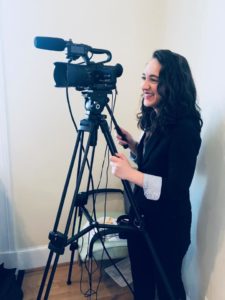
Me at my internship in the El-Hibri Foundation
With just a few weeks left of this semester in the AU Gap program, I find myself reflecting on my gap experience and the lessons I will take away. Through classes and workshops, I’ve learned valuable interview and networking skills. I now have a polished resume, know how to write a cover letter, and feel prepared to apply for future jobs and internships. And, going to college, I’ll already have internship experience which will set me apart from my peers.
This semester, I’ve interned at the El-Hibri Foundation (EHF), an organization that equips Muslim leaders and allies with the tools to build thriving, inclusive communities through grants and various programs. EHF provides grants to nonprofits that serve American Muslim Communities. They also offer resources in areas like capacity-building and strategic planning. With my interest in international relations, social justice, and empowering marginalized groups, I knew before I even started interning that EHF would offer invaluable lessons.
Perhaps one of the most exciting parts of my internship has been working during the trainings that EHF offers their grantees. Earlier this month, I assisted the foundation during a Nonprofit Management Training, transcribing speeches, greeting attendees, and filming and recording the event. Each task provided insights into event work and how events run smoothly: picture that image of a swan, graceless and effortless above water, frantically paddling below. But in between running up and down flights of stairs with each new task, I had the opportunity to network with the event participants. I spoke to employees at think tanks, respected imams, and even a former diplomat! And in the moments where I was sitting, taking in each word the speakers were saying, I had the chance to learn alongside these notable people. Over my time at the El-Hibri Foundation, I’ve developed a profound appreciation for the work they, and other nonprofits like them, do. I’ve been welcomed into the foundation, learning valuable lessons from people I’ve come to deeply respect, and I have a sense that the work I’ve done is appreciated and valued. I feel grateful that I’ve had this experience; grateful to the El-Hibri Foundation and the AU Gap program. I can’t think of another place where I would have the opportunity to explore my passions in such a way. With just a few weeks left of this program, I can’t wait to see what my remaining time entails, and I’ll be sure to soak up every ounce of new information I learn. – Isabelle Moshiri- Elwood, AU GAP Program Student
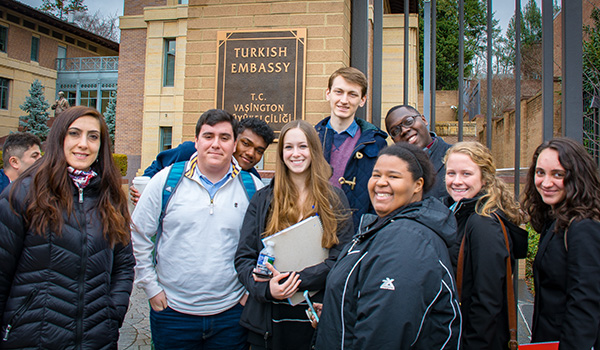
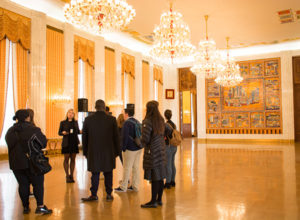 t with Deputy Head of the Economic Section, Grigory Zasypkin. At the Turkish Embassy the following week, they attended a private seminar on cultural diplomacy with Embassy Counselor Celil Erdogan.
t with Deputy Head of the Economic Section, Grigory Zasypkin. At the Turkish Embassy the following week, they attended a private seminar on cultural diplomacy with Embassy Counselor Celil Erdogan.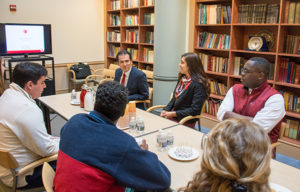 owcase Turkish national identity to a wider global audience. One such campaign is their annual “Turkey Home” event, where artists, journalists, clergymen, intellectuals and other “opinion makers” come together at the Ministry of Culture and Tourism in Ankara to network and forward the mission of culture-making in Turkey.
owcase Turkish national identity to a wider global audience. One such campaign is their annual “Turkey Home” event, where artists, journalists, clergymen, intellectuals and other “opinion makers” come together at the Ministry of Culture and Tourism in Ankara to network and forward the mission of culture-making in Turkey.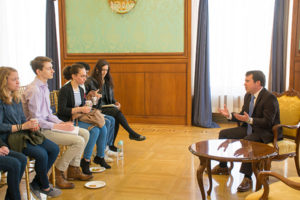 ey have achieved the positions they hold today is due to their pride and gratitude for being an visible representative of their home countries.
ey have achieved the positions they hold today is due to their pride and gratitude for being an visible representative of their home countries.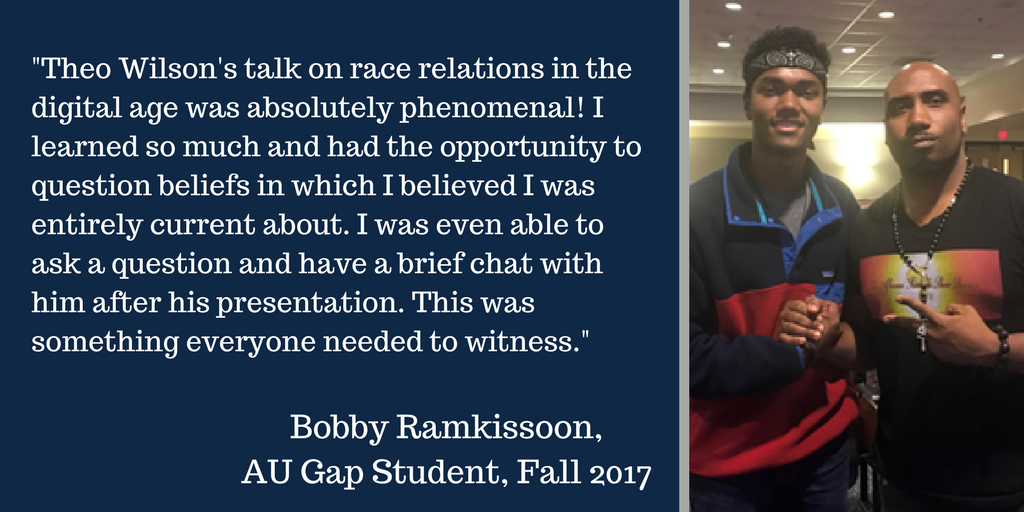
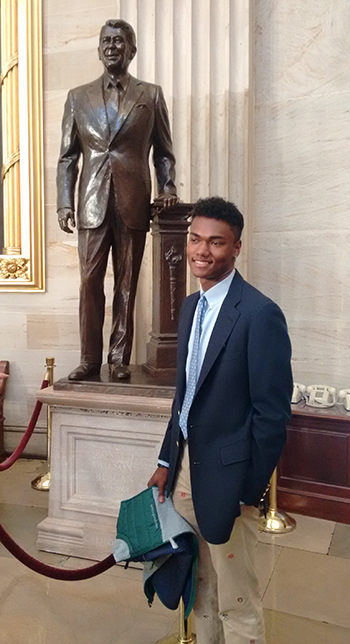
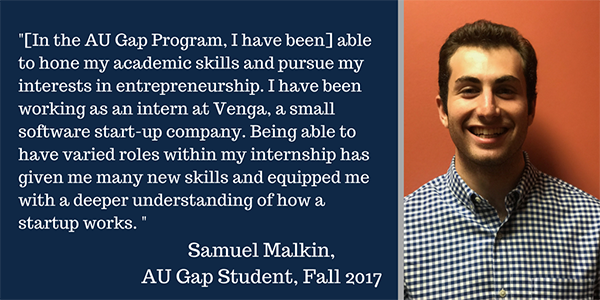
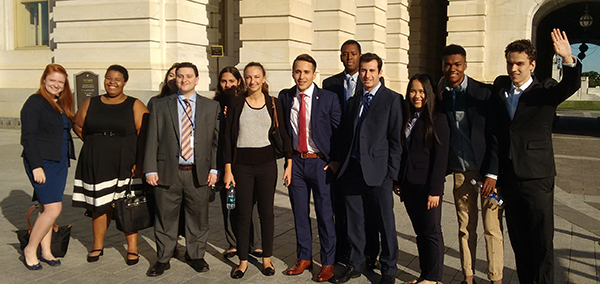 see how students would design elections and change the representation of the people in Congress, as well as to establish the rights of groups that had been previously excluded.
see how students would design elections and change the representation of the people in Congress, as well as to establish the rights of groups that had been previously excluded.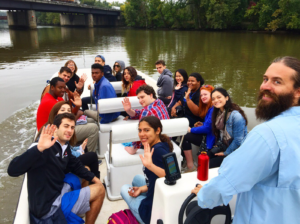
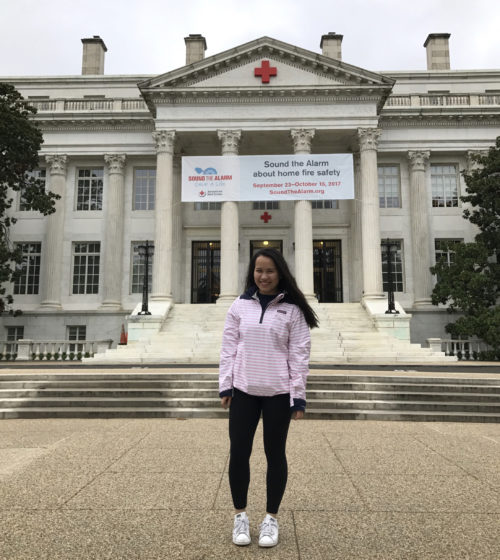
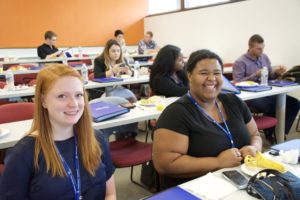 At the fair, students networked with nearly 100 organizations to find an internship for their
At the fair, students networked with nearly 100 organizations to find an internship for their 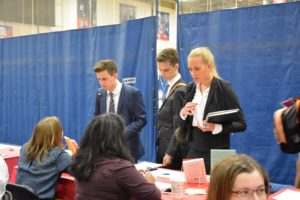 Yesterday, students started their
Yesterday, students started their 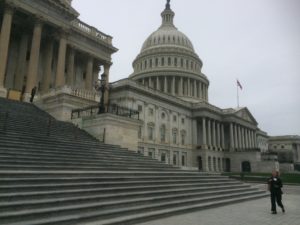 In the closing weeks of my time here in D.C. I’ve come to really appreciate the opportunity I’ve had to experience the city where so much happens. My internship with Lobbyit, a small lobbying firm located near the Congressional office buildings, has taught me valuable skills about working in an office setting as well as giving me more knowledge on the political processes of our country. I have been able to see more closely the political process and have attended various hearings by the Committees of Congress, both house and senate. Every day of my internship I have the pleasure of being able to see my favorite building in Washington, D.C., the United States Capitol Building.
In the closing weeks of my time here in D.C. I’ve come to really appreciate the opportunity I’ve had to experience the city where so much happens. My internship with Lobbyit, a small lobbying firm located near the Congressional office buildings, has taught me valuable skills about working in an office setting as well as giving me more knowledge on the political processes of our country. I have been able to see more closely the political process and have attended various hearings by the Committees of Congress, both house and senate. Every day of my internship I have the pleasure of being able to see my favorite building in Washington, D.C., the United States Capitol Building.